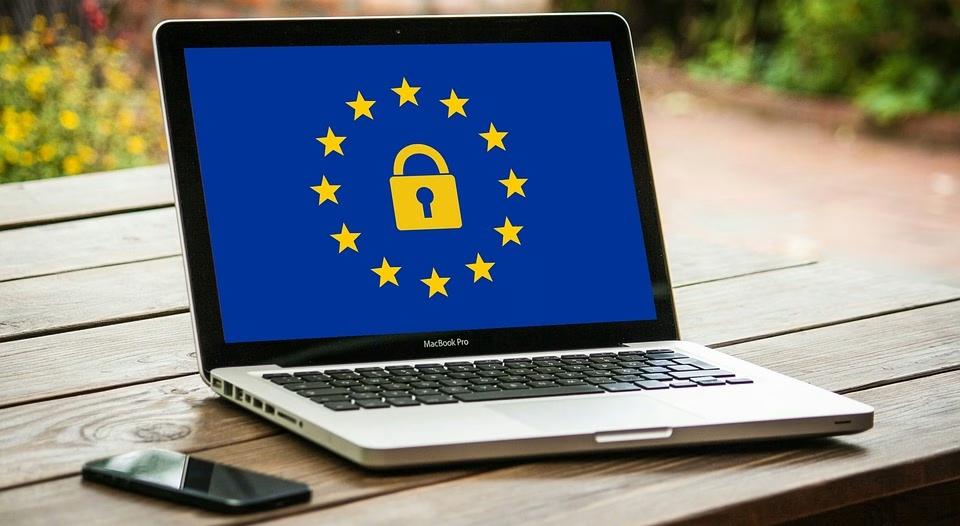Unlocking GDPR Compliance: Must-Have Tools for Every Business

Introduction: Why Security and Privacy Matter Today
In an increasingly digital world, security and privacy have transcended from mere conveniences to essential requirements. As businesses pivot to remote work and individuals engage more with online services, the risks associated with cyber threats have skyrocketed. According to reports, cybercrime is expected to cost the global economy over $10.5 trillion annually by 2025; this staggering figure underscores the urgency of adopting robust cybersecurity measures.
From multinational corporations to small startups, every entity is vulnerable to data breaches, identity theft, and cyberattacks. As such, it’s crucial for both businesses and individuals to implement effective security tools and practices.
Overview: The Risks Businesses and Individuals Face
Cyberattacks
Cyberattacks encompass a range of malicious activities aimed at compromising data integrity, confidentiality, or availability. Common forms include ransomware attacks, phishing, denial-of-service attacks, and more. These incidents can lead to substantial financial losses and damage to an organization’s reputation.
Data Leaks
Data leaks can occur due to inadequate security practices, leading to unauthorized access to sensitive information. Instances like the Facebook data breach of 2021, where millions of records were exposed, highlight the dire consequences of poor data management.
Identity Theft
Identity theft is a growing problem that can have a lasting impact on both personal and professional life. Cybercriminals steal personal information to commit fraud, making it essential to safeguard personal data through encryption and secure storage solutions.
Best Tools: Top Recommendations for 2025 Cybersecurity
1. Norton Antivirus
- Features: Real-time threat protection, firewall, VPN, dark web monitoring
- Pricing: Starting at $39.99/year
- Pros: Comprehensive protection, user-friendly interface
- Cons: Can slow down system performance
2. ExpressVPN
- Features: No-log policy, split tunneling, high-speed connections
- Pricing: Starting at $6.67/month
- Pros: Strong privacy features, easy to use
- Cons: Slightly more expensive than competitors
3. LastPass
- Features: Password vault, password generator, secure sharing
- Pricing: Free version available; Premium at $3/month
- Pros: User-friendly, multi-device access
- Cons: Security issues revealed in 2023 raised concerns
4. 1Password
- Features: End-to-end encryption, travel mode, password breach alerts
- Pricing: $2.99/month for individuals
- Pros: Extremely secure, intuitive design
- Cons: No free version available
5. Proton Drive
- Features: Secure cloud storage, end-to-end encryption, zero-access encryption
- Pricing: Free version available; Plus at $4/month
- Pros: Excellent privacy features, strong encryption
- Cons: Limited features compared to mainstream cloud services
6. Malwarebytes
- Features: Malware protection, ransomware protection, real-time scanning
- Pricing: Starting at $39.99/year
- Pros: Thorough scanning capabilities, minimal system impact
- Cons: Lacks a firewall feature
7. Bitdefender Total Security
- Features: Anti-malware, anti-theft, secure browsing
- Pricing: Starting at $44.99/year
- Pros: Comprehensive coverage, excellent detection rates
- Cons: Some features require additional configuration
8. NordVPN
- Features: Double VPN, CyberSec, P2P sharing
- Pricing: Starting at $3.71/month
- Pros: Strong encryption, extensive server network
- Cons: The app can be cumbersome at times
9. Kaspersky Internet Security
- Features: Real-time protection, privacy tools, vulnerability scanning
- Pricing: Starting at $29.99/year
- Pros: High detection rates, user-friendly
- Cons: Controversies over data privacy in the past
10. CylancePERSONA
- Features: Predictive AI technology, user behavior analytics, multi-platform protection
- Pricing: Contact for quote (business solutions)
- Pros: Innovative, focuses on proactive security
- Cons: Enterprise-level features may overwhelm small businesses
Best Practices: Step-by-Step Methods to Improve Security and Privacy Using Software
1. Use Strong, Unique Passwords
- Implement a password manager to generate and store complex passwords.
- Avoid using the same password for multiple accounts.
- Enable multi-factor authentication (MFA) wherever possible.
2. Regular Software Updates
- Set devices to automatically install updates.
- Regularly check for updates on applications and security software.
- Maintain a list of software to track updates manually.
3. Frequent Backups
- Use software like Acronis or Backblaze for automated backups.
- Store backups in different locations: local and cloud storage.
- Periodically test the recovery process to ensure data integrity.
4. Educate Yourself and Your Team
- Conduct cybersecurity training sessions for employees.
- Share resources on recognizing phishing attempts and scams.
- Establish a protocol for reporting suspected cyber incidents.
5. Secure Network Settings
- Change default router passwords to something unique and complex.
- Enable network firewalls and turn off WPS if it’s not in use.
- Use a VPN to encrypt internet traffic, especially on public Wi-Fi.
Industry Trends: Insights into Current or Upcoming Cybersecurity Trends in 2025
Zero Trust Architecture
The Zero Trust model is gaining traction as organizations realize the need for stricter access controls. Unlike traditional security models that trust users within a network, Zero Trust operates on the principle of "never trust, always verify."
AI and Machine Learning
AI-driven cybersecurity tools are becoming more sophisticated, utilizing machine learning to analyze vast amounts of data and predict potential threats even before they happen.
Regulatory Compliance
Stricter data protection regulations are emerging globally. Companies will need to adapt quickly to comply with laws like GDPR in Europe and similar frameworks in other regions.
Rise of Quantum Computing
As quantum technology evolves, it promises to both aid in cybersecurity and pose new threats. Encryption methods that are secure today may become vulnerable, forcing a reevaluation of security protocols.
Case Studies / Examples: Real-World Security Breaches and Lessons Learned
Target Data Breach (2013)
In one of the most infamous breaches, Target lost the data of 40 million credit and debit card accounts. The breach occurred due to poor network segmentation and oversight. Lesson learned: Implementing robust network controls and regular security audits can mitigate such risks.
Marriott International Breach (2018)
Marriott faced a massive data breach affecting approximately 500 million guests. The breach was attributed to inadequate security measures on a database acquired through its acquisition of Starwood Hotels. The lesson here is clear: comprehensive integration of IT security during mergers and acquisitions is paramount.
SolarWinds Hack (2020)
This sophisticated attack showcased the vulnerabilities in supply chain security. By compromising a single supplier, attackers gained access to numerous high-profile organizations. The takeaway is the necessity for continuous monitoring and vetting of third-party vendors.
Comparisons: How Leading Tools Differ in Protection, Pricing, and Usability
Here’s a quick comparison of some leading cybersecurity tools to help you decide which fits your needs:
| Tool | Protection Level | Pricing | Usability |
|---|---|---|---|
| Norton Antivirus | High | $39.99/year | User-friendly |
| ExpressVPN | High | $6.67/month | Easy to navigate |
| LastPass | Moderate | Free; Premium $3/mo | Very intuitive |
| Bitdefender | High | $44.99/year | Simple starting point |
| Proton Drive | High | Free; Plus $4/mo | Straightforward |
Pros & Cons: Balanced Analysis for Readers to Make Informed Decisions
Pros
- Comprehensive Coverage: Tiered tools and solutions provide a variety of protections tailored to user needs.
- Ease of Use: Many modern cybersecurity tools are designed to be user-friendly, catering to both technical and non-technical users.
- Regular Updates: Top cybersecurity solutions provide constant updates to protect against newly discovered vulnerabilities.
Cons
- Cost: High-quality tools can be expensive, particularly for small businesses and startups.
- Over-reliance: Many users fall into complacency, believing that installing software alone ensures security.
- False Sense of Security: Not all software is 100% effective, and malware can still infiltrate networks in subtle ways.
FAQs
1. What is the best antivirus software for 2025?
The best antivirus software for 2025 includes Norton’s robust features and Bitdefender’s high detection rates. Both offer unique benefits suited for different types of users.
2. Which VPN is safest?
ExpressVPN is highly regarded for its no-log policy and double encryption features, making it one of the safest VPNs available.
3. How to secure business data?
To secure business data, employ strong password policies, conduct regular training, use encryption, and maintain automated backups.
4. What features should I look for in a password manager?
Essential features include end-to-end encryption, secure sharing, multi-device access, and a built-in password generator.
5. Is cloud storage secure in 2025?
With advancements in encryption and security protocols, secure cloud storage in 2025, such as Proton Drive, offers a reliable way to store sensitive data.
Conclusion: Final Thoughts and Practical Advice
As we navigate the intricacies of cybersecurity in 2025, the responsibility to protect personal and organizational data falls on us all. Adopting the right tools, staying abreast of industry trends, and practicing good security hygiene can significantly reduce vulnerability to cyber threats.
For individuals, investing in the best antivirus software of 2025 and utilizing top VPNs for privacy are critical steps. For businesses, comprehensive training and cohesive security policies are vital. By being proactive and informed, we can safeguard our digital lives against increasingly sophisticated cyber threats.
🚀 Try Ancoia for FREE today and experience the power of business automation!
🔗 Sign up now and get a 7-day free trial



